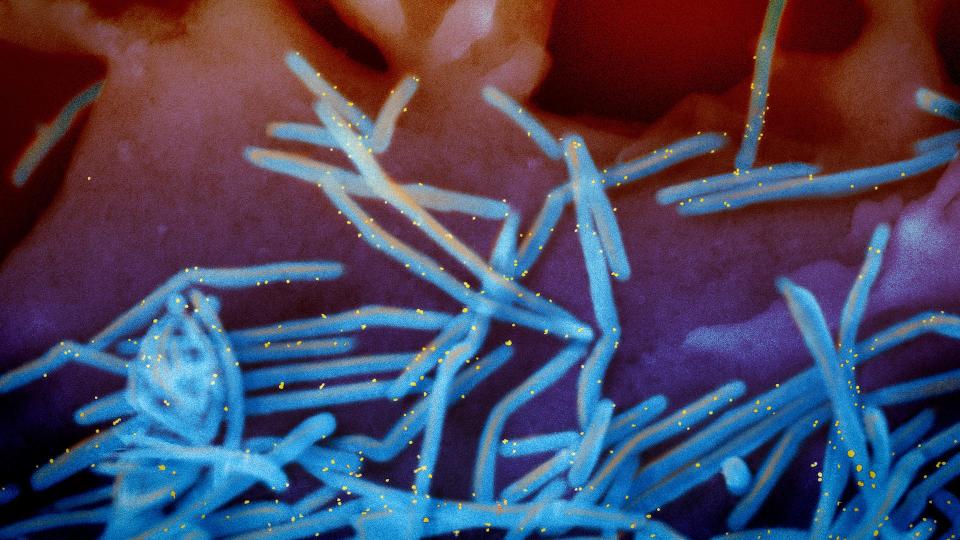COVID, flu, RSV spreading again in Palm Beach County, Florida, How to know RSV is bad
Respiratory illnesses are on the rise this holiday season in Palm Beach County, but for one disease, the spread is milder than last year.
Concentrations of COVID-19, the flu and RSV (respiratory syncytial virus) have risen throughout December. But local sewage tests indicate COVID is not spreading anywhere near as fast as it did 12 months ago.
The flu and RSV, however, are spreading as fast as in December 2022. And statewide, both diseases appear to be sending people to emergency rooms more often than last year.
More: It's time to think about flu, COVID-19 and RSV vaccines. When to get shots, how to afford them
RSV slightly higher than last year in Florida

An average of 5% of emergency room patients younger than age 5 in the three weeks ending Dec. 23 had RSV, the latest Florida Department of Health report monitoring the illness shows. That's slightly higher compared with the same time period in the past three years.
RSV hits babies and the elderly hardest. Its cold-like initial symptoms include runny nose, fever, cough, sore throat and congestion. While these symptoms usually clear up in a few days, a barking or wheezing cough can be a sign of a more serious illness, the American Lung Association says.
RSV symptoms that require urgent care include bluish lips and fingernails, difficulty breathing, not drinking enough and widening the nostrils while breathing, also called nasal flaring.
The U.S. Centers for Disease Control and Prevention recommends adults ages 60 and over get an RSV vaccine shot after discussing it with their doctors. The federal agency also recommends immunization for expectant mothers during weeks 32 through 36 of gestation during pregnancy.
More: FDA approves first vaccine for RSV. Here's 11 things you should know
Vaccination appointments for seniors and pregnant women are plentiful at local CVS and Walgreens pharmacies. But RSV shots for babies are in short supply, the CDC says. The CDC recommends that medical staff prioritize administering the drug nirsevimab — brand name, Beyfortus — to infants younger than six months with underlying conditions that make them most vulnerable to RSV. Babies 8 to 19 months old should get palivizumab — brand name, Synagis.
Flu also on the uptick in Palm Beach County
The national WastewaterSCAN initiative found 28 to 80 coronavirus particles per milligram of county sewage between Dec. 18-22 in wastewater from the Jupiter-area Loxahatchee River District, its latest tests show. Viral concentrations during the same time period in 2022 were 196 to 200 particles per milligram. COVID has surged in winter across the county and the state each year since the pandemic started.
Influenza A, the only flu strain known to cause pandemics, spiked to 186 particles per milligram Dec. 22, from about six particles per milligram Dec. 8.
Flu virus levels were above 200 particles per milligram during the week of Christmas in 2022, only slightly higher than the latest readings.
Statewide, an average of about 5% of ER patients were diagnosed with the flu during the three weeks ending Dec. 23, the latest Florida Department of Health report shows. That's higher than the 4% recorded during the same time period in 2022, and 1.5% in 2021.
RSV concentrations in Palm Beach County sewage have bounced between 17 and 18 particles per milligram Dec. 20 and Dec. 22, slightly higher than the 11 to 12 particles per milligram reported during a similar time period last December.
Chris Persaud is the data reporter for The Palm Beach Post. You can reach him at cpersaud@pbpost.com. Help support our journalism.
This article originally appeared on Palm Beach Post: Flu, COVID, RSV spreading in Florida. How to know when RSV is serious

